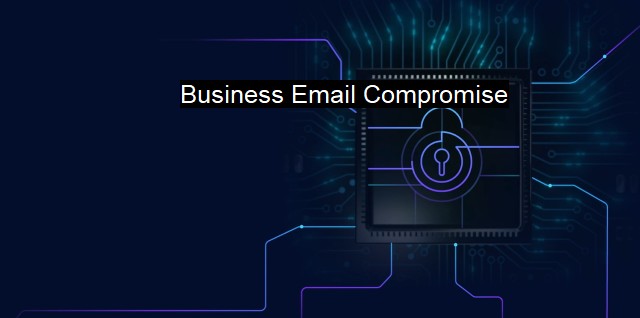What is Business Email Compromise?
Business Email Compromise in the Interconnected World: Understanding the Evolution of Cybercrime Targeting Financial Operations
Business Email Compromise, popularly abbreviated as BEC, refers to a type of cyber-attack in which the attacker exploits the often trusted business-personal email communication channel to deceive the receiver into conducting a fraudulent activity on their behalf. It is a sophisticated scam with potentially devastating consequences and is widespread primarily due to the significant value of the transactions being targeted.In the grand scheme of cybersecurity, BEC has emerged as a prominent threat to businesses of all sizes and sectors. Typical targets of BEC attacks are companies operating with foreign suppliers or those who regularly perform wire-transfer payments or use digital payment methods. this does not imply other businesses are immune. Any business that uses email as a communication channel is perfectly viable to get targeted.
There are different forms of BEC scams, and understanding them can help companies safeguard themselves. One common method attackers resort to is email spoofing, in which they manipulate the email elements to make it look like the email is coming from a trusted source. For instance, an attacker could pretend to be the business's CEO, asking its finance department employee to initiate a money transfer to an account the attacker controls.
In some other cases, the cybercriminal could take control of a person's email account by obtaining password credentials through techniques like phishing. Once they gain control, they observe the email exchanges, learn about the individual's role in the business, their style of communication, and who they usually interact with. This tactic ensures that their fraudulent email appears more legitimate and hence, higher chances of the fraud being unnoticed.
By now, it should be made clear that the fraudsters are not just hijacking the email systems but are also extremely effective communicators who are exhibiting a very thorough and detailed approach. They conduct an extensive background study about the target company and its employees involved, which displays the high level of preparedness involved in executing such scams.
To guard against these potentially disastrous attacks, organizations need to prioritise their cybersecurity and antivirus measures. Antivirus solutions can help protect against malicious code that might attempt to infiltrate network systems and access sensitive information. Meanwhile, cybersecurity measures could be more varied and comprehensive.
Regular employee training, especially for those dealing with business finances, is a key measure companies should undertake. Employees need to be made aware of BEC and similar threats and trained in good online practices. Suspicious emails, particularly those involving financial transactions, should always be verified before implemented. Implementing two-step verification processes can be another effective way to reduce such compromises.
Improved organizational policies can also help fend off BEC. Implementation of stringent checks and balances, especially regarding financial transactions and the sharing of confidential information, can act as a strong deterrent for BEC scams. It's also wise to adopt a policy that prevents the sharing of sensitive information through email, no matter how small or inconsequential that information might seem.
Email security systems also enter the part they play in preventing BEC. Employing strong firewalls, enabling stringent spam filters, consistently update antivirus software, keeping the email system up-to-date, using a Web Application Firewall, etc., are a few ways for strengthening email security.
Cyber insurance better equips any business, small or big, from facing the financial implications of a BEC occurrences by providing for the losses encountered. Concurrently, it is advisable to report BEC attempts to public authorities allowing them to take necessary actions and spread awareness.
As everything modernizes and upgrades, so do cyber threats. Therefore, BEC calls for continuous conscious preventive and mitigative efforts to avoid falling prey to such technological threats. Companies today need to robustly respond to this ever-evolving threat landscape and make cybersecurity and antivirus measures an integral part of their business strategy to effectively mitigate risks and protect their assets.

Business Email Compromise FAQs
What is business email compromise?
Business email compromise (BEC) is a type of cyber attack that involves a fraudster gaining access to a company's email system and using it to conduct fraudulent activities.How does business email compromise happen?
BEC can happen through a variety of methods, including phishing, social engineering, and malware. The attacker may send an email that appears to be from a trusted source, such as a company executive or vendor, and ask for sensitive information or money.What are some ways to prevent business email compromise?
Some ways to prevent BEC include implementing two-factor authentication, verifying email requests through a separate communication channel, training employees on how to identify and report suspicious emails, and using antivirus software to detect and prevent malware.What should I do if I suspect a business email compromise attack?
If you suspect a BEC attack, you should immediately notify your IT department or cybersecurity team. It's important to also stop all financial transactions and review all recent transactions to identify any unauthorized activity. It's also recommended to report the incident to law enforcement and your bank.| | A | | | B | | | C | | | D | | | E | | | F | | | G | | | H | | | I | | | J | | | K | | | L | | | M | |
| | N | | | O | | | P | | | Q | | | R | | | S | | | T | | | U | | | V | | | W | | | X | | | Y | | | Z | |
| | 1 | | | 2 | | | 3 | | | 4 | | | 7 | | | 8 | | |||||||